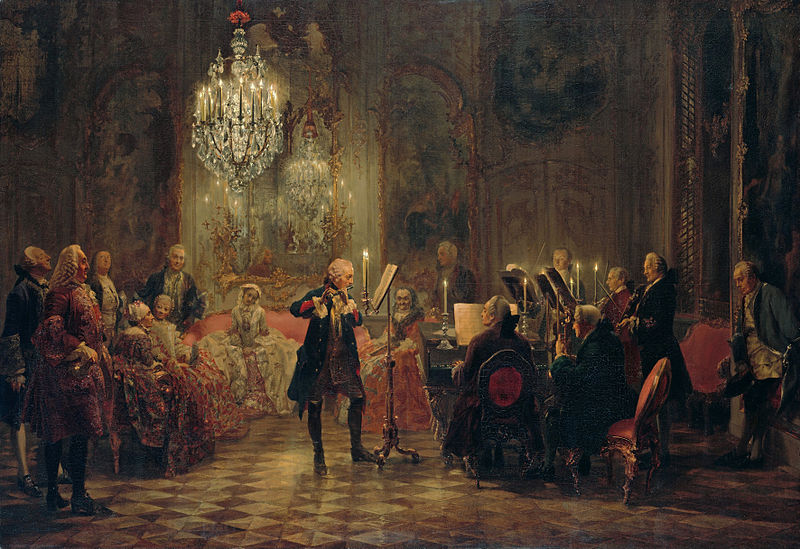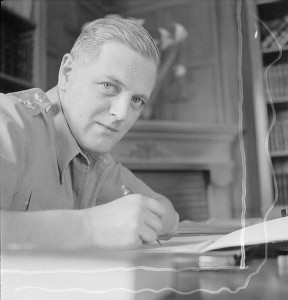
Yesterday, March 8th, was Carl Philipp Emanuel Bach’s birthday. Born March 8th, 1714 to the most illustrious of fathers, Johann Sebastian Bach, one can feel some sympathy for C.P. Emanuel as the role of living in the shadow of greatness is not always the easiest of jobs. It is fitting to celebrate Herr Bach’s birthday though as, all things considered, he held up the family mantle rather well. Somewhat better of a politician than his father, he ended up in the court of Frederick the Great, and in his lifetime was well known across Europe for his own prodigious talents at the clavier and composition. Haydn, Mozart, and Beethoven all recognized his contributions, George Philipp Telemann was his godfather – you could hardly do better with a set of connections such as that. Yet as for all offspring that had to stand in the shadows of the brilliant suns that were their fathers, C.P. Emanuel faced the battle of achieving happiness and personal accomplishment permanently measured against the Promethean accomplishments of his progenitor.
We might take a moment to acknowledge a profound contributor to advances in sediment transport, Hans Albert Einstein. Maybe hydraulic engineering doesn’t exactly elicit the same awe as the Theory of Relativity, but Hans knew about sedimentation, and his father Albert was proud of him as a full professor at Cal Berkeley. Or Ernst Freud,

an architect in the Art Deco to Modernist style, who generally allowed none of the submerged psychological conflicts outlined by his father Sigmund to confuse his clean and accessible modernist style of architecture. John Quincy Adams managed to achieve the height of success that was his father John’s legacy, the Presidency of the United States, but a generation removed from the concept of founding a revolutionary democracy, he is not about to have David McCullough write a book about him.
Unfortunately, there are also the legacies of greatness that devoured the sons that seem to be telling. Charlemagne’s son Pepin was potentially gifted the Holy Roman Empire as heir to the throne, but misfortune was his calling. Two strikes were present upon Pepin’s birth and youth that doomed him to history. The presence of significant scoliosis made him Pepin the Hunchback, not exactly the impression the first Emperor of a continental power wanted to project to his people as his progeny, and additionally Pepin had the misfortune of his father’s contracted relationship with his mother Himiltrude deemed illegitimate, making him in mid-youth a bastard son and out of the line of succession. Such blows of fate are not exactly historical foundations for greatness. Pepin responded like all diminished sons, spending the majority of life plotting against his father, resulting in his permanent banishment to a monastery, and guaranteeing no statues commemorating Pepin the Hunchback. Randolph Churchill was the son Winston and the great, great, great, great grandson of the Duke of Marlborough.

Unfortunately he was also the grandson of Sir Randolph Churchill, Winston’s father, inheriting his grandfather’s tendencies for poor choices and rash behavior. Living in the shadow of the man who saved western civilization is obviously a burden that would be great for any offspring, and Randolph cascaded between jealousy, alcohol, and womanizing, obscuring the additionally present familial character traits of courage, adventurous spirit, and literary talent. He paralleled his American compatriot, James Roosevelt, son of Franklin in that both felt the pull of politics that defined their father. But though both James and Randolph eventually were elected to political office, neither could establish individual identities from their famous fathers, and their political careers floundered. Randolph late in life seemed to find stability in writing for history his father’s legacy through a biography of the famous father, but his alcohol driven poor health, crashed this salvation in its infancy with his death in 1968, just three years after Winston.
And that brings us back to Carl Philipp Emmanuel Bach, not ever to be confused with his father on the Mount Rushmore of composers, or perhaps even with his somewhat more innovative brother, Johann Christoph Friedrich. All in all, given the immense legacy he labored under, C.P. Emanuel Bach proved to be a decent composer, a respected intellect in Frederick the Great’s court, and a pretty good piano (clavier) player. Not bad.
Happy Birthday, Carl Philipp Emanuel.
